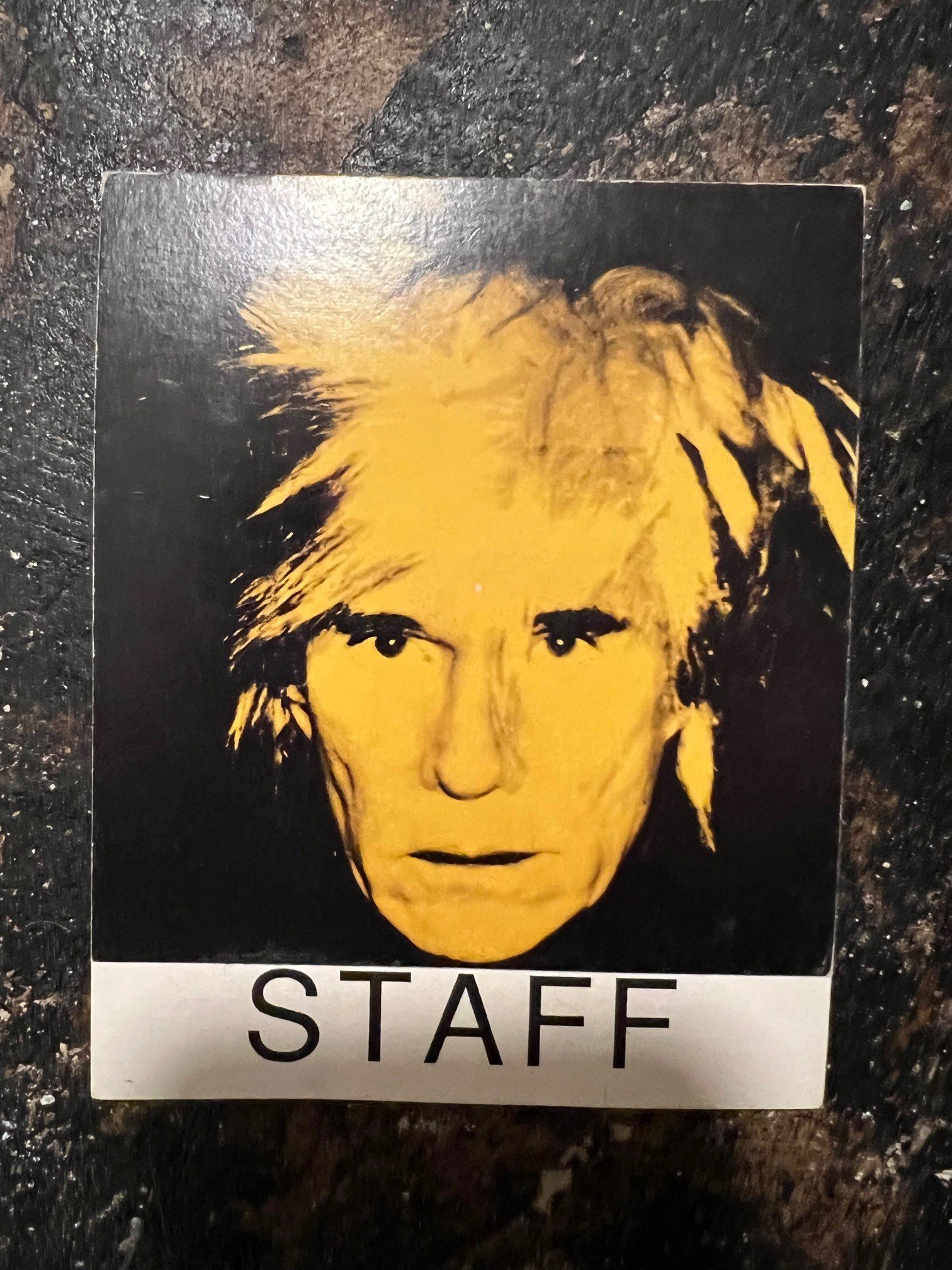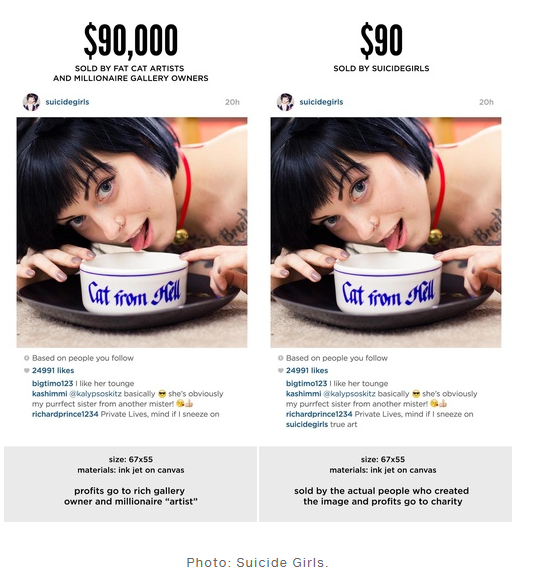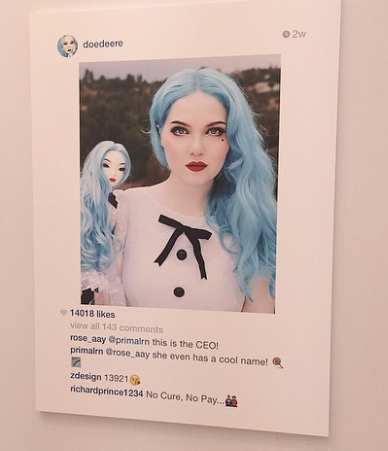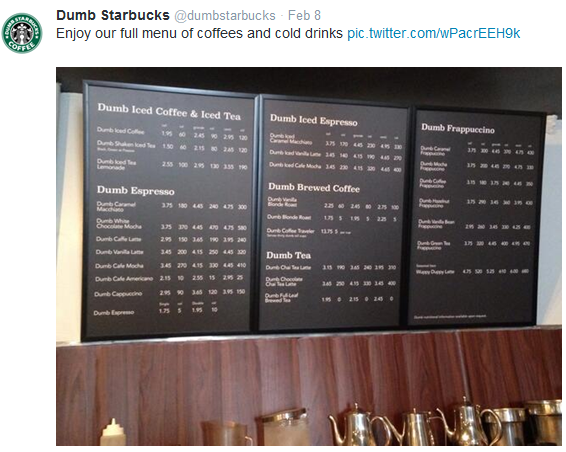The Supreme Court of the United States has issued its long-awaited ruling in the dispute between photographer Lynn Goldsmith and the Andy Warhol Foundation for the Visual Arts (AWFVA) on May 18, 2023. The Court held the AWFVA’s delivery to Condé Nast magazine in 2016 of an Andy Warhol silkscreen from 1984 based on a 1981 Goldsmith photograph of the musician Prince did not satisfy the first factor (of four) of the statutory fair use elements. The Court took a narrow approach, explicitly declining to reach the question of whether Warhol’s original work would qualify for a fair use defense, holding only that the 2016 use did not.
(Williams College Museum of Art Security Badge, ca. 1993)
Read More
Topics:
Cariou v. Prince,
Copyright Act,
Philippa Loengard,
Campbell v. Acuff Rose Music Inc.,
Kernochan Center for Law Media and the Arts,
17 U.S.C. § 107,
Columbia Law School,
Andy Warhol,
Fair Use,
Andy Warhol Foundation for the Visual Arts,
Syracuse University,
Condé Nast,
Kagan,
Sotomayor,
Roberts,
Titian,
Lynn Goldsmith,
Vanity Fair,
Thomas,
Giorgione,
Goya
Reactions to the Richard Prince Instagram story continue to filter in, and highlight the perpetual confusion between what is publicly available and what is in the public domain. They are not the same thing, with important legal consequences.
Read More
Topics:
Richard Prince,
Missy,
Copyright Act,
Prince v. Cariou,
Canal Zone,
Patrick Cariou,
Suicide Girls,
vulture.com,
Yes Rasta,
17 U.S.C. § 107,
Jerry Saltz,
Instagram,
Copyright,
transformativeness,
Fair Use,
ArtNet,
New York Magazine,
§ 107
Few art law cases have received as much attention as that of Richard Prince and his dispute with Patrick Cariou over the latter’s Yes, Rasta photographs that Prince altered, defaced, and otherwise rearranged for his Canal Zone series. Prince has now garnered renewed attention for his appropriation of Instagram images in a set of works he has been selling at a Gagosian Gallery show called “New Portraits" (and in various other venues over the last few months). He escaped liability for infringement of Cariou’s pictures (though the case settled after remand; several infringement claims were still in play when the parties settled). Can he do so again? If this recent effort is not infringement, it certainly begs the question of whether the fair use exception has swallowed the rule. Lastly, Instagram itself may have prohibited the entire exercise in its terms of use, a possible avenue to short-circuit the entire copyright exercise.
Read More
Topics:
Richard Prince,
Copyright Act,
DoeDeere,
2LiveCrew,
Prince v. Cariou,
Roy Orbison,
Canal Zone,
Patrick Cariou,
Internet,
Yes Rasta,
17 U.S.C. § 107,
Instagram,
Copyright,
Gagosian Gallery,
transformativeness,
Fair Use,
§ 107
News that a coffee shop had opened in Los Angeles entitled "Dumb Starbucks" has again raised the proper interpretation of fair use under U.S. intellectual property law into the realm of popular culture and commerce. Whereas last year’s Beastie Boys/GoldieBlox dustup (still ongoing) revolved primarily around copyright law, here the potential issue is one of trademark infringement. To stave off accusations of liability, the new enterprise has preemptively labeled itself an "art gallery." Will this hold up? Even Starbucks seems puzzled.
Read More
Topics:
505 U.S. 763,
parody,
Landham Act,
Weird Al Yankovic,
@dumbstarbucks,
Green Day,
Bad Starbucks,
17 U.S.C. § 107,
15 U.S.C. § 1115(b)(4),
GoldieBlox,
Copyright,
Dr. Evil,
Starbucks,
Number Two,
Twitter,
Two Pesos Inc. v. Taco Cabana Inc.,
Beastie Boys,
Fair Use,
Merriam-Webster,
Austin Powers
Comments by the federal judge overseeing the copyright dispute arising out of the Google Books project could portend a lasting effect on reproductions of visual arts. Elevating the question of social benefit in a fair use analysis, Judge Denny Chin of the U.S. District Court for the Southern District of New York posed a question that, applied broadly (which is no theoretical proposition where Google is involved) could turn fair use analysis on its head. Time will tell if the comments were oral argument musings or something more lasting.
Read More
Topics:
Google Books,
17 U.S.C. § 107,
Copyright,
The Authors Guild,
Judge Denny Chin,
Fair Use






